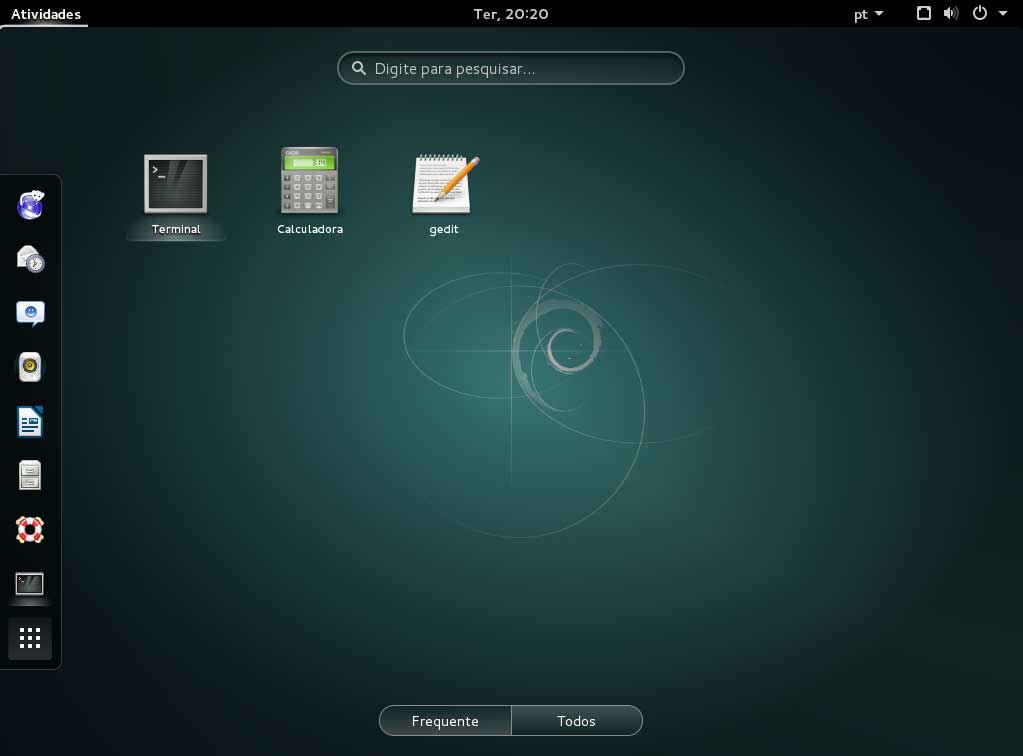

- #LINUX DEBIAN HOW TO#
- #LINUX DEBIAN MOVIE#
- #LINUX DEBIAN DRIVERS#
- #LINUX DEBIAN MANUAL#
- #LINUX DEBIAN SOFTWARE#
Debian packages of Erlang from Team RabbitMQ on Cloudsmith.io.Debian packages of Erlang from Team RabbitMQ on Launchpad.Most recent Erlang/OTP release series are available from a number of alternative Standard Debian and Ubuntu repositories can be significantly out of dateĪnd not supported by modern RabbitMQ versions. Where to Get Recent Erlang Version on Debian and Ubuntu using a backports repository)īut their testing and support is done on a best effort basis. The package may work on other Debian-based distributions Debian Bullseye (11), Bookworm (12), and Trixie ("testing").inline with distribution EOL policy.Ĭurrently the list of supported Debian-based distributions includes RabbitMQ is supported on several major Debian-based distributions that are still supportedīy their primary vendor or developer group.įor Debian, this means that RabbitMQ core team focus around package is on the current and prior release of Debian-based distributions,
#LINUX DEBIAN MANUAL#
This option will require manual installation of all RabbitMQ package dependencies and is highly discouraged. Manually Using DpkgĪlternatively, the package can be downloaded manually and installed with dpkg -i. Version of Erlang is available via a Launchpad PPA and other repositories.

The repositories provide a modern version of Erlang. Is using apt repositories on a Cloudsmith mirror ( quick start script).
#LINUX DEBIAN HOW TO#
How to Install Latest RabbitMQ on Debian and Ubuntu With AptĬurrently, the recommended option for installing modern RabbitMQ on Debian and Ubuntu
#LINUX DEBIAN MOVIE#
These days you'll find Jordan hosting movie streaming simulcasts with his friends over Discord, building VR-ready gaming PCs, or reviewing the latest Wi-Fi routers.This guide covers RabbitMQ installation on Debian, Ubuntu and distributions based on one of them. He also wrote and edited product descriptions for an e-commerce store for four years. Jordan earned a bachelor of arts in English in 2016, and he's coached college students on writing effectively and utilizing education technology. Beyond technology, he's also professionally written on agriculture business for Ozarks Farm & Neighbor, edited proposals for non-profits, and presented at a writer's conference on superheroes and culture. Prior to getting started at How-To Geek, Jordan published articles for MakeUseOf about Linux commands, free and open-source software, and online privacy. He's repaired his own smartphones, hosted home cloud servers, and revived old computers with Linux. As a kid, he learned object scripting through the MS-DOS game engine ZZT, and he later taught himself the basics of Python programming. Jordan started writing technology guides in 2020, but his technology and writing experience extends far and wide.
#LINUX DEBIAN DRIVERS#
Ubuntu will also make sure you get all necessary hardware drivers at installation, proprietary and otherwise. Generally, if there's a popular app available for Linux, you can get it with ease the moment you first boot up Ubuntu (an exception might be Google Chrome).
#LINUX DEBIAN SOFTWARE#
In stark contrast, Ubuntu Desktop doesn't hold any proprietary software back.

Related: How to Install Google Chrome on Ubuntu Linux You can only get that proprietary software by adding specific repositories to your software sources, downloading DEB files from official websites, or installing them through services like Snap or Flathub. This also includes drivers necessary to make some critical hardware work, including NVIDIA GPUs.

When you first run Debian, you don't have immediate access to proprietary software, which includes popular apps like Spotify, Steam, and Microsoft Teams. Ubuntu and Debian take different approaches to the debate on free and open source (FOSS) versus closed source or "proprietary" software. Ubuntu Makes Proprietary Software Easier to Get


 0 kommentar(er)
0 kommentar(er)
